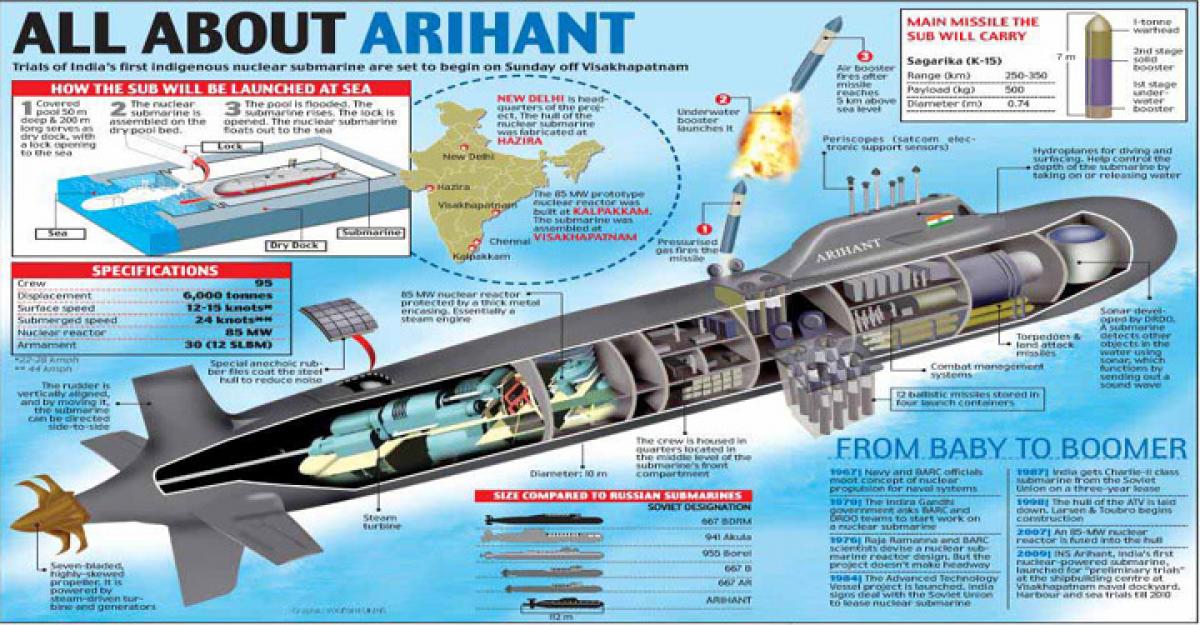Live
- GMR Airports Unveils AI-Powered Digital Twin Platform to Transform Airport Operations
- India poised to become leading maritime player: PM Modi
- Top Causes of Kidney Stones and How to Recognize Silent Symptoms
- India’s renewable energy capacity logs 14.2 pc growth at 213.7 GW
- Winter Session of Odisha Assembly adjourned sine die
- Biden calls Trump's tariff approach 'major mistake'
- After Drama Over Eknath Shinde’s Chief Minister Race, Maharashtra Cabinet Formation Faces New Tensions
- Egyptian FM, Blinken discuss recent developments in Syria
- Iran's supreme leader says Syria's developments result of US-Israeli 'plot'
- Elon Musk to Purchase $100 Million Luxury Mansion Next to Donald Trump's Mar-a-Lago, Report Reveals





 While the navy is tightlipped on INS Arihant's participation in the International Fleet Review (IFR), a senior officer, on condition of anonymity, told IANS that efforts are on to get the boat ready before the event. The officer, however, added that there will be no compromise with trials as safety is the primary concern.
While the navy is tightlipped on INS Arihant's participation in the International Fleet Review (IFR), a senior officer, on condition of anonymity, told IANS that efforts are on to get the boat ready before the event. The officer, however, added that there will be no compromise with trials as safety is the primary concern.



